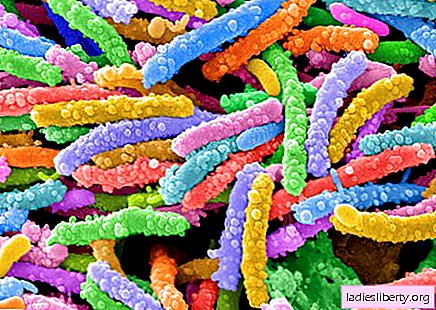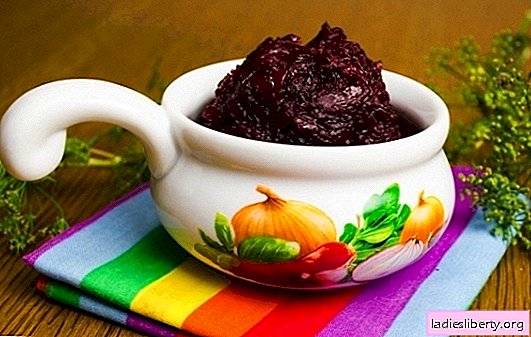
The long 9 months were finally left behind, contractions, toxicosis, it was all over.
You were discharged from the hospital, and a whole new life began.
Many mothers are interested in the question of why such abundant periods after childbirth, how long they should go and whether it is normal at all?
Abundant menstruation after childbirth: causes
Since heavy bleeding is far from the best consequence after childbirth, a woman needs to carefully monitor her health. If you suddenly experience the symptoms listed below, you should definitely visit a gynecologist:
1. Menstruation lasts more than two weeks after childbirth.
2. The amount of blood released is very large.
3. Clots come out with blood.
4. Menstruation is accompanied by severe pain.
5. Nausea, general condition is weak.
After childbirth, heavy bleeding may not stop for many reasons. It may happen that a small part of the placenta remains in the uterus, which will interfere with normal recovery. Female injuries or nodes may occur.
For many women in labor, childbirth is difficult, and the uterus is damaged. In addition, heavy periods may not stop due to the presence of infection. Each of these cases requires specialist intervention. It is worth noting that in some women, such a heavy menstruation after childbirth is the norm. But still, it is necessary to be examined by a qualified specialist.
During childbirth, damage to the female genital organs can occur: tears, injuries. Such problems can provoke prolonged labor. The most undesirable and dangerous consequence is the inversion of the uterus. The disease is not common, but it can lead to the fact that menstruation will be long and plentiful.
Another reason is a bleeding disorder. Practical disease is always genetic. That is why if a woman knows about her ailment, she should expect such complications.
Abundant menstruation after childbirth: menstruation or bleeding
Bleeding after childbirth always lasts two weeks, and sometimes more. In some women, the uterus contracts for a month, but this is extremely rare. But at the same time, pain always intensifies, especially in the back and abdomen at the time of feeding the baby. This is due to the fact that at this time, the activity of the uterus increases, and she in every possible way tries to get rid of excess blood. If the pain bothers you very much, you can drink an anesthetic, but only in consultation with your doctor.
In order for the uterus to contract as quickly as possible, oxytocin is prescribed in the maternity hospital.
The first bell for concern for a woman - menstruation does not end for a month, while they are accompanied by an unpleasant odor. All this may indicate that the process of uterine contraction is impaired, an inflammatory process is observed, and maybe a pathological neoplasm. Visit your doctor as soon as possible, remember that the sooner you are diagnosed, the sooner you can recover.
If the uterus contracted quickly, then a month later, menstruation may come. In many women, the menstrual cycle is restored quite quickly. Of course, this does not happen often, but, nevertheless, it is quite normal. Usually this happens in those women who easily underwent pregnancy and childbirth, and perhaps give birth more than once.
If the menstruation does not bother and pass as always, then everything is fine. But in any case, after one and a half to two months after the birth, you need to visit a gynecologist and make sure that everything is fine.
Abundant periods after childbirth: consequences
If a woman is inactive, then this will not lead to anything good. The most common consequence of this condition is anemia, because the blood loss is too much. The thing is that blood contains a lot of iron, and if blood loss is plentiful, iron deficiency will occur in the body.
The consequences can be very different: lack of air, migraine, nausea, dizziness, tachycardia. As a result, a woman will become very irritable, aggressive. In any case, it is impossible to independently begin treatment in this case. The only thing a woman can do in the most extreme cases is folk methods.
Abundant menstruation after childbirth is a completely explainable and normal phenomenon, but until a certain time. If they do not end in one to two weeks, then this indicates that serious disorders occur in the body. The uterus does not contract, as expected, and cannot be cleansed. Of course, only a doctor can make a diagnosis.
Abundant periods after childbirth: what to do
Since abundant menstruation can provoke a lack of iron, it is necessary to correct this situation. In order to avoid such a problem, you need to make up for the lost iron as soon as possible. It is better if you regularly take iron inside. You can get it from fruits, vegetables, vitamins. With large blood loss, you need to drink plenty of fluids. Today, there are many drugs that can increase iron in the body, take them in combination with other, no less bypassed trace elements (manganese and copper). Thanks to this, the body metabolizes drugs better.
But there is another way that can help a woman prevent the so-called “iron crisis”. The main thing is to start iron deficiency prophylaxis in time, even at the time of birth, and then continue it after the birth of the baby. To do this, follow the simple rules:
1. Try to eat only wholesome, balanced food. Refuse fast food, too fatty foods, do not abuse fizzy drinks.
2. Carefully monitor your health, timely pass the necessary tests, undergo examinations. Try to get registered earlier so that the doctor observes you from the very first months of pregnancy.
3. At the stage of pregnancy planning, fully examine your body, if there are chronic diseases, it is advisable to get rid of them or to take preventive measures.
4. Do not overwork. Distribute your day carefully, there should be enough time for rest in it.
5. Try not to enter into conflicts, avoid any stressful situations.
If a woman has too much menstruation after childbirth, you can use folk remedies in order to slightly stop bleeding and help the uterus contract. But it is recommended to use any remedy only after being examined by a specialist and received approval. So, The most effective folk remedies are as follows:
1. Many medicinal herbs have a hemostatic effect: shepherd's bag, pine forest, nettle, yarrow. In order to prepare a medicinal decoction, you need to finely chop the grass, and then pour it with one glass of boiling water. Put everything in a water bath for 15 minutes, then drive through. The finished product must be taken within one week half an hour before meals. The product is completely safe and does not affect milk.
2. A good way to stop bleeding - corn stigmas. Herb is brewed in the same way as in the previous case. Take three times a day, one spoonful.
3. The following remedy is suitable only for patient women. In the period when the period does not pass after the delivery for a long time, you can put pressure on a certain point every day. It is located between the upper lip, in a hollow in front of the nose. Despite the fact that this is a rather unusual way, it can reduce the intensity of the menstrual cycle.
4. Every day, drink tea based on mint or viburnum. But be very careful, watch out if the baby is responding to this drink.
5. Take two tablespoons of oat grains, place in a container and pour boiling water. Set aside for 20 minutes. It is recommended to drink the finished product instead of water.
Medications
Many young mothers begin to consult with their neighbors or friends about how to quickly stop the menstruation after childbirth. Doing this, of course, is not worth it. Since an independent solution to such a problem can only aggravate your situation. Wait two to three weeks, if the menstruation does not stop, visit the gynecologist for an examination. In the event that a serious reason for this condition is identified, the specialist will prescribe drug therapy. Most likely, you will have to give up feeding the baby for a while.
Hemostatic agents are actively used, which can reduce discomfort and save you from unnecessary blood loss. Most often, experts prescribe the following funds:
1. Ascorutin. Under the influence of the drug, the walls of the vessels strengthen, the permeability of the capillaries decreases markedly. The general condition of the young mother is getting better.
2. Tranexam. This is a modern drug, which is prescribed for heavy periods after childbirth. The course of treatment is under the strict supervision of a physician.
3. Dicinon. The medicine is used if large clots come out with menstruation.
4. Vikasol. This drug is known to many. This is a good analogue of vitamin K, which has an effect on blood coagulation. It is prescribed only if the menstruation is really plentiful. Since the drug has many contraindications, it can only be prescribed by a doctor.
It is important to understand that the sooner the doctor determines why the menstruation does not stop, the sooner you will be prescribed treatment. In any case, you can not use any drugs yourself.
Abundant menstruation after childbirth: prevention
Despite the fact that heavy periods after childbirth are normal, you can try to at least slightly reduce the amount of blood released. Due to this, the woman will feel a little better, there will be no discomfort.
First of all, adhere to a proper diet, eat foods containing magnesium. Refuse coffee and tea, as they have a constricting effect, and blood vessels cannot fully relax.
Try to limit fluid intake a little, as a result, the amount of blood secreted will decrease.
In ancient times, acupressure was used, this is a kind of massage, in which there is an effect on certain biological points. Get down on the knee from the inside on one palm. It is there that the point is located, which is responsible for the profuse bleeding. You can also get rid of pain if it is present.
Pregnancy and childbirth is always a kind of stress for the body, so you need to monitor your health more carefully.











